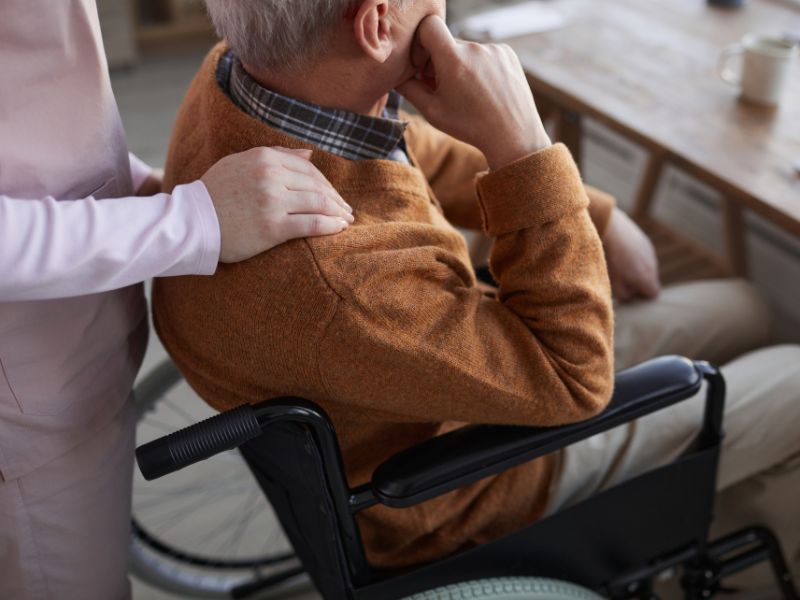You’ve reached that age when it’s time to say goodbye to where you worked for several years and enter a new era of your life — retirement. For some people, this isn’t a concern, but it’s actually common for some to develop depression and even anxiety during retirement. In this post, we will assess strategies you can use to cope and avoid depression and anxiety during your retirement.
Potential causes of depression and anxiety during retirement
Mental health is something that we sometimes overlook when we think about the well-being of our bodies. Perhaps you feel a bit anxious as you grow older and get closer to retirement age. Yet, you address your physical symptoms and think the anxious feelings might pass on their own. Unfortunately, this can lead to more severe symptoms later on — especially by the time you step down and submit your retirement officially.
Before we look at strategies that can help you cope with depression and anxiety during your retirement, let’s first consider what causes these mental health conditions to develop at this age. Some studies have found that these problems affect as many as 34% of retirees, and the rates are even higher in certain populations.
- Loneliness and feeling isolated are common causes, especially if a person loses their partner in the years prior to or during retirement.
- The person’s reduced mobility can further make them feel isolated and helpless.
- Health-related problems showing up in older age are also a relatively common concern.
- Failure to plan from a young age for retirement could leave a person with little funds to use in their older age, which is another potential cause of depression and anxiety.
Tips on how to manage depression and anxiety during retirement
Here, we’re going to take a closer look at the top ways that you can counter depressive thoughts and anxious feelings as you journey through your own retirement.
Make sure to stay active by doing physical exercise and finding new hobbies
Regular physical activity continues to remain important when it comes to looking after yourself as you age. Research suggests that as much as 50% of the physical decline older people experience might be due to a lack of exercise. Incorporating a physical exercise routine a few times a week can help you feel better about yourself, maintain your muscle mass more effectively, and even provide you with mental benefits.
In addition to exercise, consider taking on a hobby that can keep you busy too. It’s a great way to keep your mind occupied and give you something that adds new meaning in your life.
Devote time to socializing with friends, family, and neighbors

Loneliness is an important cause of depression among older adults, which is why it’s important to ensure you set aside time to spend with your loved ones. Apart from your partner, make sure you also spend time with the kids and the grandchildren. Don’t forget to interact with your neighbors too. Social interaction can do wonders for your mental well-being.
Take part in activities that make you feel useful and productive
Some people feel like they are no longer as useful as they were when they were working, but this isn’t necessarily true. It’s important to find what makes you feel productive and useful again in your later years. This could be anything from volunteering at a local shelter to joining a local club where you can play a game of cards or darts. Do something that you enjoy but an activity that also makes you feel included and like you are contributing to a greater cause.
Develop a positive attitude toward aging and retirement
Many people fear age, and that’s understandable, but constantly having negative thoughts about your own age will only contribute to those depressive thoughts. It’s important to find a way to adopt a more positive attitude. Instead of taking on a mindset where you associate retirement with things like disability and death, try to look at it as a brand new chapter in your life filled with opportunities.
Create a balanced daily routine
While it’s important to have fun and do things you love, it’s also crucial that you add balance to your daily routine after retirement. Try to find a way to keep things from spiraling out of control. Set a bedtime for yourself and stick to it. Try to exercise on the same days every week. While these may feel repetitive and even boring, they will help you feel more organized.
Seek professional help if needed
Many people hesitate to seek out a professional when they experience depression and episodes of anxiety. The truth is simply talking to a therapist can make a big difference in your mental health. If you feel like the overwhelming thoughts of retirement are getting too much for you to bear alone, then make an appointment with a therapist. Community therapists that offer services without hefty appointment fees would be best if finances are a major concern for you, then seek out. If your anxiety and depression have a significant impact on your daily life, it might also be worth considering a referral to a psychiatrist who can prescribe you the appropriate medication to help you manage your symptoms.
Conclusion
Retirement can be confusing and even scary for some people, especially when funds are low and you’re not sure how you are going to live a comfortable life for your remaining years. By living an active lifestyle, finding hobbies you enjoy, and socializing with others, you can effectively prevent the onset of depression and anxiety. If you are already experiencing symptoms, the tips we looked at can help to reduce how much of an impact they have on your life.

